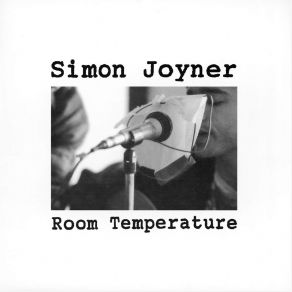Room Temperature
Download links and information about Room Temperature by Simon Joyner. This album was released in 1993 and it belongs to Songwriter/Lyricist genres. It contains 15 tracks with total duration of 57:04 minutes.

|
|
|---|---|
| Artist: | Simon Joyner |
| Release date: | 1993 |
| Genre: | Songwriter/Lyricist |
| Tracks: | 15 |
| Duration: | 57:04 |
| Buy it NOW at: | |
| Buy on iTunes $9.99 | |
| Buy on Amazon | |
Tracks
[Edit]| No. | Title | Length |
|---|---|---|
| 1. | Folk Song for Sara | 4:00 |
| 2. | The Shortest Distance Between Two Points Is a Straight Line | 4:07 |
| 3. | Ruby Slippers | 2:50 |
| 4. | Hallelujah | 3:48 |
| 5. | Double Joe | 3:37 |
| 6. | Ghettoblaster | 3:31 |
| 7. | Godzilla | 4:27 |
| 8. | Vegetables | 1:45 |
| 9. | Seizure | 4:43 |
| 10. | Pseudonym Song | 4:25 |
| 11. | Scribble | 4:13 |
| 12. | Homebase | 3:36 |
| 13. | Petri-Dish | 3:29 |
| 14. | Leavenworth Café Blues | 3:53 |
| 15. | Grapefruit | 4:40 |
Details
[Edit]Joyner's debut shows that he certainly loves his Dylan, along with many other impassioned singer/songwriters armed with acoustic guitars, vocals, and nothing else. If derivative, Room Temperature is still a promising start, thanks in large part to Joyner's wry but emotional way around his lyrical stories. Most of his songs stand up on their own on the printed page, slice-of-life observations from 1993 that often capture a definite, wracked poignancy regarding go-nowhere lives or brick walls suddenly thrown in the path of people's regular days, even if it's just, as he sings at one point, "those damn kids' ghettoblasters destroying my mood." "Ruby Slippers" contains one of his best opening gambits — after noting that supposedly halogen lights can cause cancer, he suggests, "Why don't you flip the switch so we can start our own stupid fight in the dark?" One area Joyner differs from Dylan is in his singing voice, favoring a less forced approach that approaches the gently conversational more than once, appropriate given the subject material of the songs. His voice does crack at points, certainly, suggesting just post-adolescent enough melodrama without forcing the matter. There's also something just haunted and uneasy enough about Joyner's vocals on his calmer songs that lends things greater heft — not self-conscious spookiness, more sighing regret. The way he begins "Hallelujah" like he's just been emotionally sucker-punched or the slowly rising then retracting intensity of "Homebase" make for two of the album's best moments. Joyner's guitar playing won't surprise anyone, he knows he way around quicker, brisk playing and softer approaches, more than once showing he's got some Nick Drake around as well. Joyner shows humor in dealing with the inevitable lo-fi tag his work would be labeled with — in the credit list, he is described as playing "guitar, 'harmonica' and tape hiss."